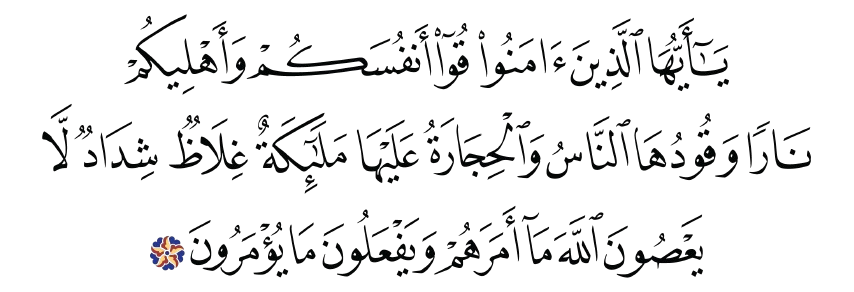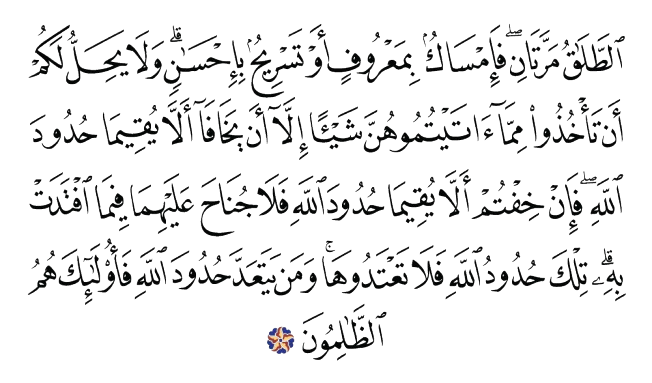The Wali: Why His Role Still Matters
As women grow more independent, the Wali’s role in Muslim marriages remains crucial, ensuring compatibility and safeguarding emotional and spiritual well-being.
Everyone wants to be loved, to the extent that many frequently succumb to sufficing with lust. Love is hard, only proven through time and strife, and (with the proper intention) is a spiritual endeavor, whereas lust is quick and exclusively emotional. If we are not careful, we can mistake lust’s intensity for love, short-changing our potential to experience the true gift of love that gives us emotional fulfillment and deepens our connection with Allah.
True love is a beautiful dance. As Malcolm described it, “With really good partners, all you need is just the push-pull suggestion. They glide nearly effortlessly, even off the floor and into the air, and your little solo maneuver is done on the floor before they land, when they join you, whirling, right in step.”1 It is not something you can force; you move with the music (i.e., life) as the rhythm changes. Lust, on the other hand, because of its ephemeral nature, naturally orients us to seek control and sustain it; sometimes, holding onto its intensity at any cost, we belittle or circumvent principles—personal or Shar’i (religiously legislated). Neglecting the Wali’s (consenting guardian’s) involvement before and during the courting phase is among the most insidious, especially for our sisters.
Women today have more opportunities than ever before, Al-Humdulillah. From these opportunities, women are highly educated (more likely than men to have a four-year college degree) and are working more than ever before. Women live, making wise decisions independently without men daily, and the figurative wheels have yet to fall off the car. Because of this, some may question the modern-day practicality of Islam’s necessitating a Wali for women (specifically in marriage); perhaps some even view it as superficial, if not antiquated and obsolete.
Nevertheless, every month, it seems I have a sister schedule an appointment who yearns for love to the point where she either (a) wants to marry a non-Muslim man or (b) is rushing/rushed to marry someone she will/now regrets. This is heartbreaking as an imam, but even more so as a Girl-dad, because there does seem to be more of a drought for good men. As a community, we need good, strong men for our sisters to marry and men who will fulfill their amanah (trust) of being a Wali in the interim.
Despite some traditionally held Fiqhi (legal) positions allowing women to marry without a Wali, this paper is a heartfelt caution against it.
“A no ebryting kum fram abuv a blessen” –Jamaican Proverb
Translation: Not everything that comes from above is a blessing. Explanation: Enjoy those blessings which come from above, but do not be misled by deceivers who use their superior positions to dispossess the unfortunate.
Background Context
“How did this happen to me?” is the repeated question the sisters mentioned above ask somewhat rhetorically. “We asked each other hundreds of questions, but here we are.” This question is not where the conversation ever starts, but typically, it comes up somewhere around the halfway point.
Unfortunately, this isn’t my first rodeo; I have been here before. The answer is simple, but I cannot dismiss their emotions. These amazing practicing sisters are genuinely in love with their husbands but, at the same time, have a heavy conscience—they know what they need to do, yet feel culturally trapped because of the real and horrible impact divorce has on women. I pause for a while, recollecting my thoughts, and gingerly answer their question with the hard truth,2 “You fell in love, had some traumatic experiences in your past, and sought to do the right thing by getting married, but had little to no male involvement.” Every single sister confirms.
By no means do I believe that male involvement would have absolutely prevented these sisters' impending divorces, but hindsight is 20:20. To avoid these circumstances, where our sisters find themselves searching for an escape from their marriages just a few months, sometimes days, after their nikah (wedding), both genders must understand the importance of a Wali’s role.
The definition of a Wali can be found extensively in fiqh books. The Wali is the woman’s representative and guardian. His sole responsibility, particularly regarding marriage, is to protect the woman’s interests. As men are biologically stronger than women and uniquely understand how other men think, the Wali protects and ensures her physical safety and honor. He also seeks to protect her spiritually and emotionally, ensuring the potential groom is a compatible suitor.

Assessing Compatibility
The Wali is essential in assessing whether or not the husband has the necessary core competencies for the sister he is responsible for. His ability to assess a brother will be determined by her specific needs, and not arbitrarily. Therefore, he must take his role seriously, starting with understanding who she is and what her needs are and then investigating into the brother, because the negative ramifications of anything else are severe and potentially impact generations to come.
When the Wali begins investigating a brother, he must consult those who know him. It is a pivotal way to corrobroate what he learned independently, gaining access to people who’s perspectives he does not have. This is why who he serves as a reference for the brother cannot be just anyone. I recently discovered this when a beloved friend asked if I could be a character reference for a potential bride's father. Although a great honor, providing a character reference for someone is tough for me because I find myself stuck between two truths—I cannot offer false testimony but also I worry about about breaking someone’s heart because of the weight my position in the community has. I frequently reflect on the Hadith, “There should be neither harming nor reciprocating harm.”3 Being a character reference is an amanah (trust), and my answers directly impact both the questioner and the one being asked about.
Not only should the Wali interview—I think their interview should be more of a subtle extended interrogation, but I digress—the potential suitor, but they should also ask for references. In the past, fathers simply asked me how I knew the brother and what I could say about him, and the conversation wouldn’t last more than 15 minutes. But this father was different, and I was amazed by his wisdom and thoughtfulness. I even told him, “Uncle, as the father of young daughters, I am learning a lot from you.” The summary of what I learned from my experience with this uncle is, as the aphorism goes, “Asking the right question is half the answer.”
1. Verification: Who are you asking?
When I first got on the call, the father graciously spoke to me but did not waste time with formalities and got straight to business. He told me, “When Umar b. Al-Khattab heard someone praising someone he said, ‘Have you traveled with him? Have you interacted with him in business or otherwise?’4 So, how do you know how the brother?”
This makes a good point: is this person worthy of being a good character reference? So often, I’m asked to be a character reference for people where the extent of our relationship stops at exchanging Salams and niceties. I am NOT a good reference for these folks; usually, the Imam isn’t. We typically don’t have deep relationships with most of our congregations by the nature of our roles. So, if the goal is to ascertain if this person would be a suitable suitor, we first need to know what qualities we are trying to assess. Then, and only then, will our questions be detailed, specific, and directed.
2. Skip The Good:
After passing the preliminary verification question, Uncle said, “I have observed the brother in public and know many of his good qualities. Would you please inform me of his negative qualities?”
During the courting process, it is easy to get caught up in feelings—the hope for and feelings of love—even for others other than ourselves. Marriage is an emotional process, but we want to ensure our emotions do not blind us; therefore, we must be as pragmatic as possible. If we’ve gotten to the point where we’re doing reference checks on the person, that should indicate that we like them and, therefore, know good qualities about them. Skip the good and focus on the things that may present problems now and in the future.
3. Assessing the Suitor’s Character:
When instructing us on whom to pick as a spouse, the Prophet Muhammad ﷺ did not only mention their religiosity; he ﷺ said, “When someone whose religion and character you are pleased with proposes to (someone under the care) of one of you, then marry to him.”5 This is particularly important today when religion plays a lesser role in our lives than it did previously. When religion (and cultural expectations) are more significant, people may be more inclined to “push through” the difficulties of marriage. Because that is no longer the case, ensuring character compatibility is paramount.
Some potential questions to consider:
Is he reliable and trustworthy—can he be counted on to keep his word and fulfill his obligations?
How does he manage stress or difficult situations—does he maintain composure, or does he tend to crumble under pressure?
How does he handle conflict—does he tend to be patient, or does he get angry easily?
Is he resentful or hold grudges?
These are all things that can, and (from my pastoral experience) frequently do, cause friction in a marriage. Furthermore, these things can impede a couple’s ability to grow beyond the challenges in their relationship.
4. Evaluating Family and Relationship Dynamics:
As the saying goes, “You don't just marry the person; you marry into a family.” The suitor may be amazing, but the family’s dynamic should also be considered because this is another common friction point between spouses. Although this may not be something previously experienced by the suitor, it is the responsibility of each spouse to mediate and manage their own family. This is only increased when there are cultural differences between the bride and groom. Therefore, you should assess for the following:
Do you think he can balance his aspirations with his family obligations?
Do you think he will prioritize his wife’s needs over his love for his mother?
5. Observations on Interactions with Others:
Have you seen him interact with women?
Is he respectful in his interactions, regardless of the circumstances, specifically with women?
Do you think he will respond arrogantly if a woman has a valid point, and is he open to being corrected or receiving feedback from women?
Could his friendly nature towards others, particularly women, create misunderstandings or jealousy in the marriage?
6. Suitor’s Commitment and Maturity:
Is he financially responsible?
Is he emotionally mature, and does he demonstrate maturity in his decision-making and emotional responses?
Is he committed to a lifelong partnership? Does he understand the seriousness of marriage and the commitment it entails?
7. Personal and Religious Conduct:
Does he uphold his religious obligations—prayers, fasting, etc.?
Has he shown a consistent effort to stay away from major sins and harmful behaviors such as substance abuse, gambling, or inappropriate relationships?
8. Social and Community Standing:
Does he have a good reputation among his peers and within the community?
Does he contribute positively to the community through charitable work or other community activities?

It’s Never Too Late
If you recently wed, sisters or brothers (because brothers sometimes also avoid shura (consultation) and put ourselves in unfortunate undesirable circumstances), and realize you may have moved hastily through the courting process, my advice is to exhaust your means with your spouse. Divorce is a very final process, and the mere mention of it can have profoundly negative effects. That does not mean we should be complacent or let things persist unhealthily, but we should be thoughtful and wise.
As the proverb goes, a bird in the hand is worth two in the bush. You married your spouse because of something you saw in them. If I were a betting man, I would bet there was a point you even loved them. So, what has changed? What series of events—because it is almost always a compilation of events and not just one—led you to feel the way you are now? Getting caught up and carried away in our negative feelings is easy, but we must triage the problem and ensure our diagnosis is correct. Otherwise, with a misdiagnosis, the prescription will not be effective.
I strongly recommend speaking to a wise, trusted, and unbiased third party, preferably someone with specific training, to help mediate these problems. The goal should be to assess the possibility of Islaah (reconciliation) and how to move beyond the challenges and grow into a fruitful partnership. Often, in these early stages of marriage, there is not enough trust built between the spouses to navigate these challenges effectively without being reactionary, so a third party is supremely helpful.
Ultimately, things may be untenable. In that case, the Wali is important here as well. The husband must understand the wife has a marji’ (reference) she’s a part of. He needs to realize that even if she does not want to continue with the relationship (or is fighting to stay in the relationship), as he married in an acceptable manner, he must “release [her] with good treatment.”6 Furthermore, he must know there are people to ensure the wife’s best interests are cared for. Of course, this should not be a means of abuse or manipulation on the side of the wife, as it also happens, but to ensure justice is served.

Conclusion
In conclusion, the role of the Wali remains vital in safeguarding the well-being of women seeking marriage, even in a time when women are more educated and independent than ever before. While the changing societal landscape may lead some to question the relevance of traditional practices, the real-life experiences shared by sisters who find themselves in painful marital situations reinforce the importance of male involvement in ensuring a thoughtful, balanced approach to marriage. The Wali’s role goes beyond mere tradition; it serves as a protective measure to ensure compatibility and preserve women's physical, emotional, and spiritual well-being.
In the rush to fulfill the human need for love, many overlook the deeper considerations that sustain a marriage over time. The Wali’s responsibility, along with an honest and thorough assessment of a potential spouse, is to prevent impulsive decisions that could lead to lifelong regret. Marriage is not just an emotional bond but a serious commitment requiring patience, wisdom, and foresight. By consulting trusted individuals and reflecting on the potential spouse's character, families can better ensure that marriages start with a solid foundation, minimizing the risk of future pain and disillusionment.
Ultimately, the Wali’s involvement is not an outdated formality but a crucial aspect of ensuring the long-term success and health of marriages within the community.
X, Malcolm, and Alex Haley. The Autobiography of Malcolm X. New York: Ballantine Books, 1992. 66.
My job as an Imam in general, but specifically when providing pastoral care, is to help people orient themselves in a way that pleases Allah. I try my best to avoid hurting people’s feelings, but before we can move forward, we must recognize what led us to the circumstances we find ourselves needing to change. Thus, my explicit highlighting of what these sisters indirectly mentioned previously in the conversation is not out of maliciousness but to help prompt introspection for future behavioral change.
Al-Ghazali, AbuHamid. Ihya Uloom Al-Din. Beirut, Lebanon: Dar Al-Ma’rifa. Vol. 3, 360.
Quran 2:229.



💯 percent
Thank you for addressing this topic! It’s an important one! I do think it’s a little oversimplified for us to say a better wali will prevent divorces… I think there’s something really wrong with the current crop of men. They enter and exit marriages so quickly… the solution must begin and end with them.